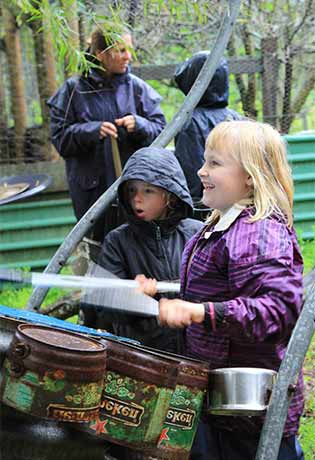At Spirit of Play Primary School we celebrate and explore:
- » A progressive approach to the Western Australian Curriculum
- » Outdoor education and walkabouts in nature
- » Different cultures and languages
- » Music: Developing skills and appreciation
- » Community participation, discipline and respect
The programs of study, listed above, are all interwoven into each school day. Literacy, numeracy, language, music, and positive behaviour are all taught, practised and assessed within a grounded and purposeful context. The context may be provided by, for example, an expedition into the bush, observations of seasonal change, or a story about the original custodians of our land.

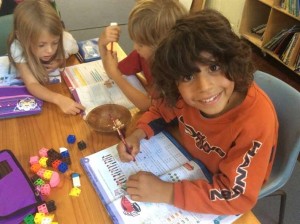
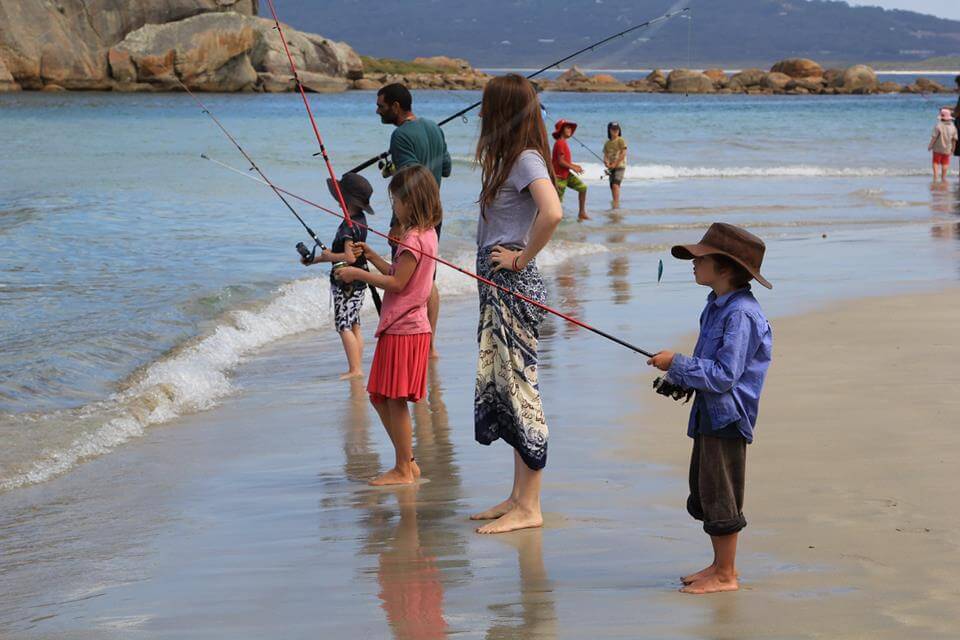
Group sharing circles aim at deepening the connections within the group. These group circles strengthen the children’s communication and understanding of the experiences they share.
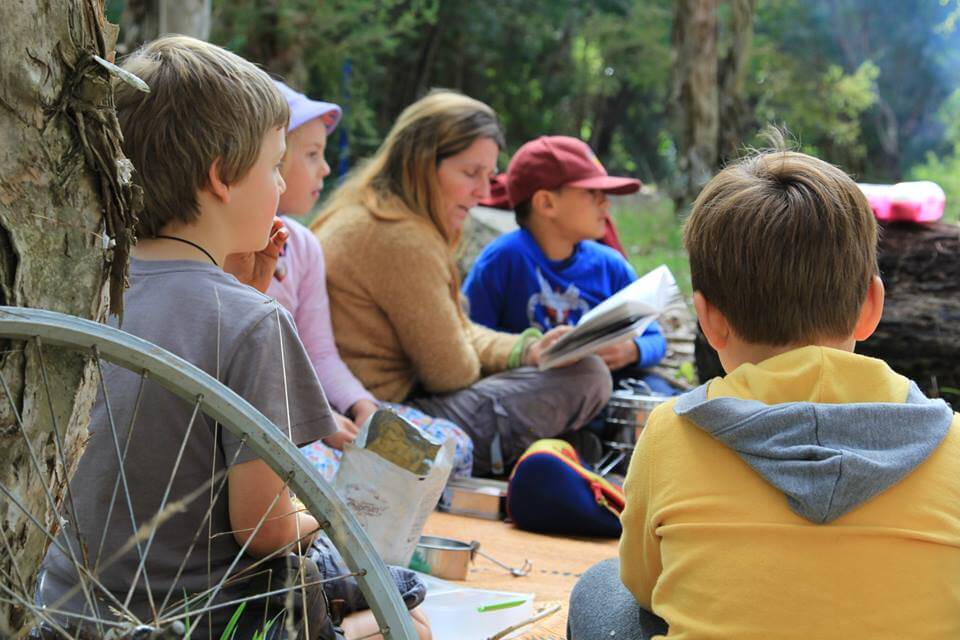
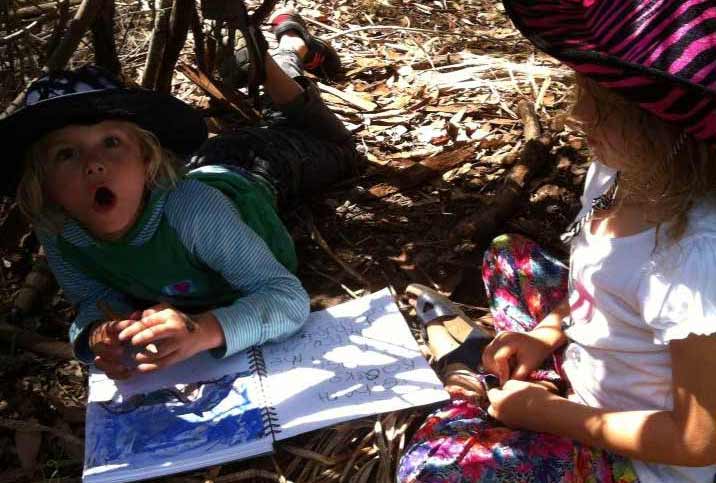
Walkabout Diary
The children have a walkabout diary that allows them to keep a record of the activities of each weeks walkabout session.
They reflect and share with each other what was good and what was hard. These books provide the basis for further explorations to the library and internet, to research any queries or anything that they have been inspired by, out in the bush.
A community school provides a nurturing environment for individual programs of study.
As a small school we enjoy a strong family atmosphere. Multi-aged activities and excellent student-to-staff ratios, allow us to focus on the needs of the students as individuals.
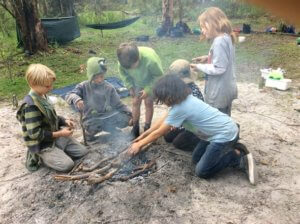
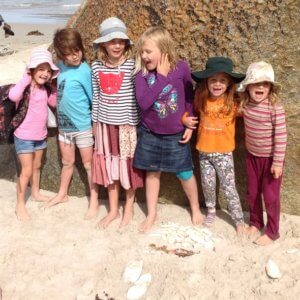

Each child has a Book of Challenges. Teachers guide the children to recognise and document their own individual strengths and needs.
A child may need extra support in an area where they are struggling, or extra extension activities in areas where they feel they would like to have their abilities stretched. Children, teachers, and parents negotiate together to create the list of challenges, and to set personal goals.
Where possible, children are also encouraged to provide support to each other. A multi-aged environment helps facilitate this.
And when the deed is done, the mission accomplished, of the best leaders the people will say, we did it ourselves.”
Benefits of a multi-aged classroom
The Association for Childhood Education International (ACEI) lists the following benefits of multi-aged classrooms, for the children:
- Challenge/support – depending on individual achievements/needs.
- Learns to be pro-social, independent, responsible, and to self-initiate.
- Development of a stronger relationship with teacher.
- Not all the class are expected to reach the same ability at the same time.
- Older children have the opportunity to serve as mentors and to take leadership roles.
- Children are more likely to cooperate than compete.
- The class becomes a “family of learners” who support and care for each other.
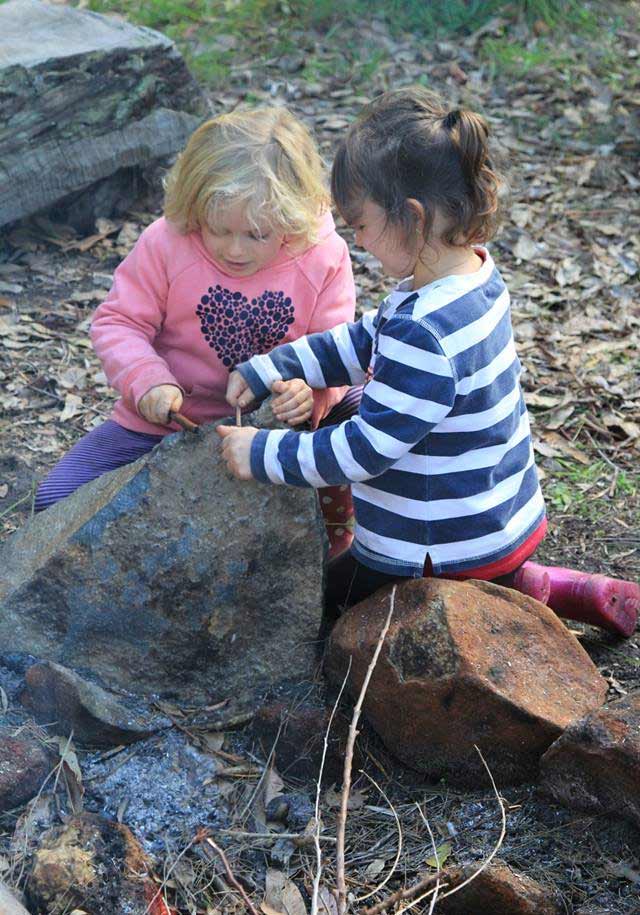
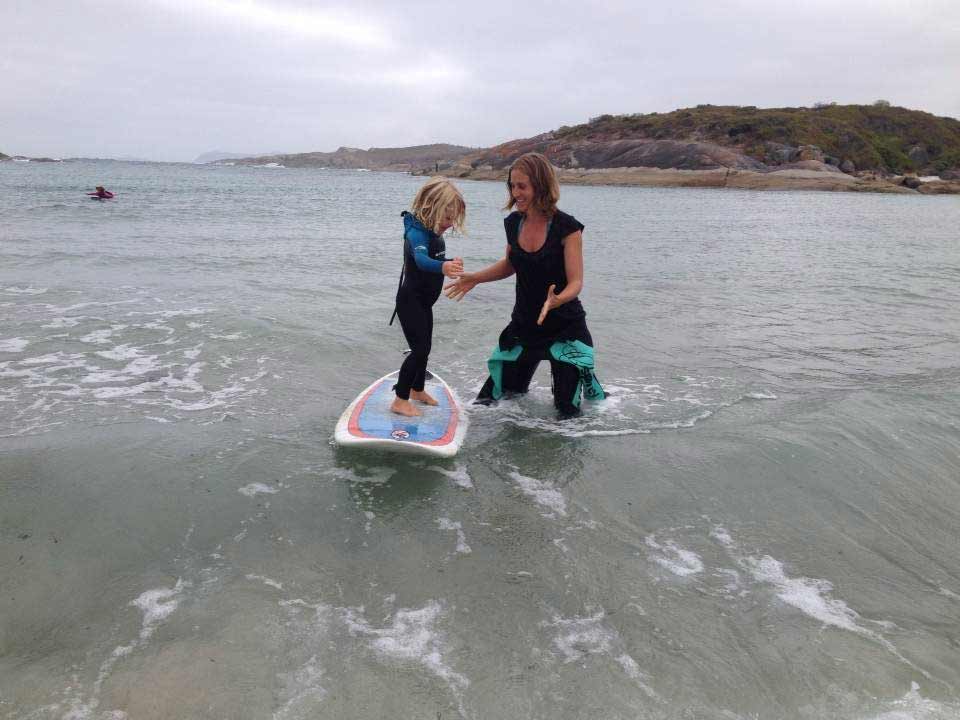
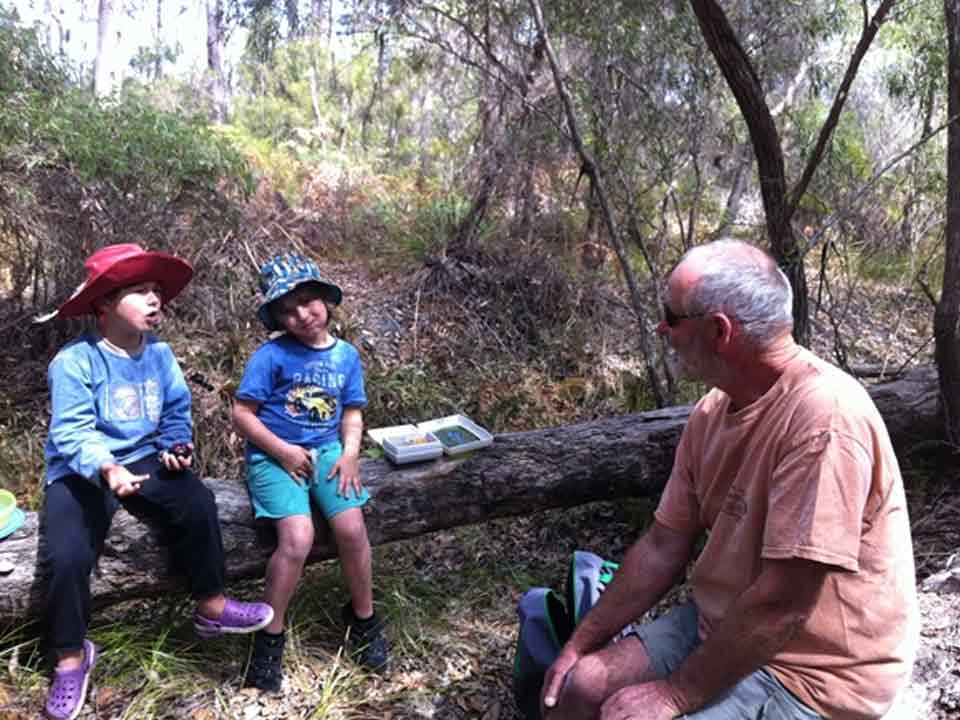
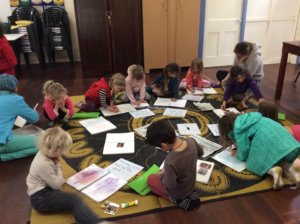

Our Outdoor Curriculum is focused on creating age-appropriate activities.
In the early years of Pre-Kindy and Kindy, children are held close to the school, venturing out on short excursions within a few hundred metres from the school at most.
As the children grow older, in Pre-Primary and beyond, they venture further into the adjacent bushland and along the walk trails that run through the school grounds.
Year 1 to 6 children visit local places of significance such as the beaches, town, wetlands, the adventure playground, and other areas within a 30km radius of the school.
As the children mature they venture further afield for camps and extended excursions.
As part of this spiralling out, the children learn the rhythms inherent in growth, and the cycle of the seasons. There is a sense of responsibility and ownership fostered amongst them which is modelled and passed on to the younger kids as they transition into each new area of exploration.
A natural framework for creativity and investigation
The environment provides natural challenges and experiential learning.
Nature-based education supports the individual needs of your child for developing:
- Confidence in problem-solving
- Social and emotional intelligence
- Intellectual development
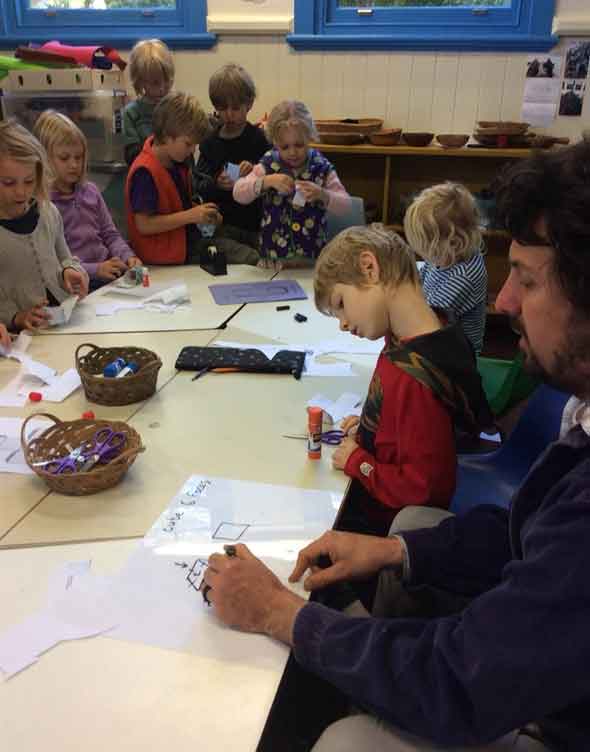
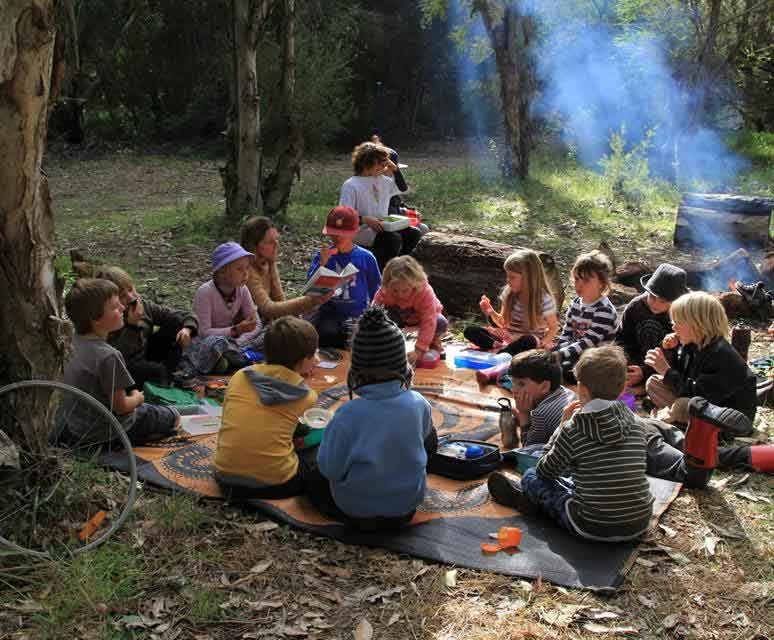
Exploring different cultures and languages
Environment, culture and language make up our heritage. At Spirit of Play we encourage children to respect, enjoy and appreciate all three of these elements.
Stories, songs, dance and other forms of creativity are ways in which the child receives and reproduces new understandings about their ever-expanding world.
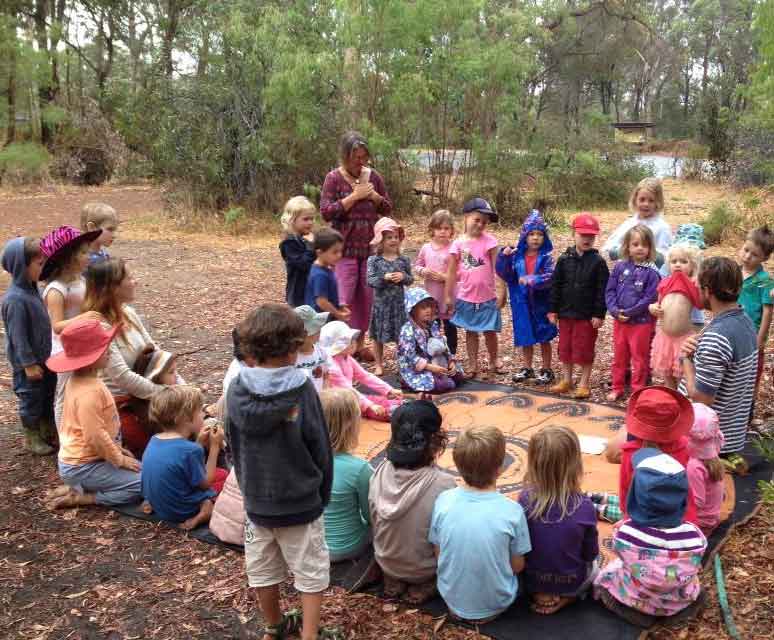
Our Cultures and Languages Program helps children to find cultural connections through various forms of storytelling, seasonal celebration, and hands-on experience of traditional ways of life.
This program fits very well with the cross-curricular priorities of the Australian Curriculum. “Aboriginal and Torres Strait Islander Histories & Cultures and Sustainability” are two priorities of the curriculum, that have been an important part of our school since its inception.
We introduce the children to cultural experiences and other languages from around the world, by inviting parents and community members of diverse geographical backgrounds to give presentations regarding their heritage.
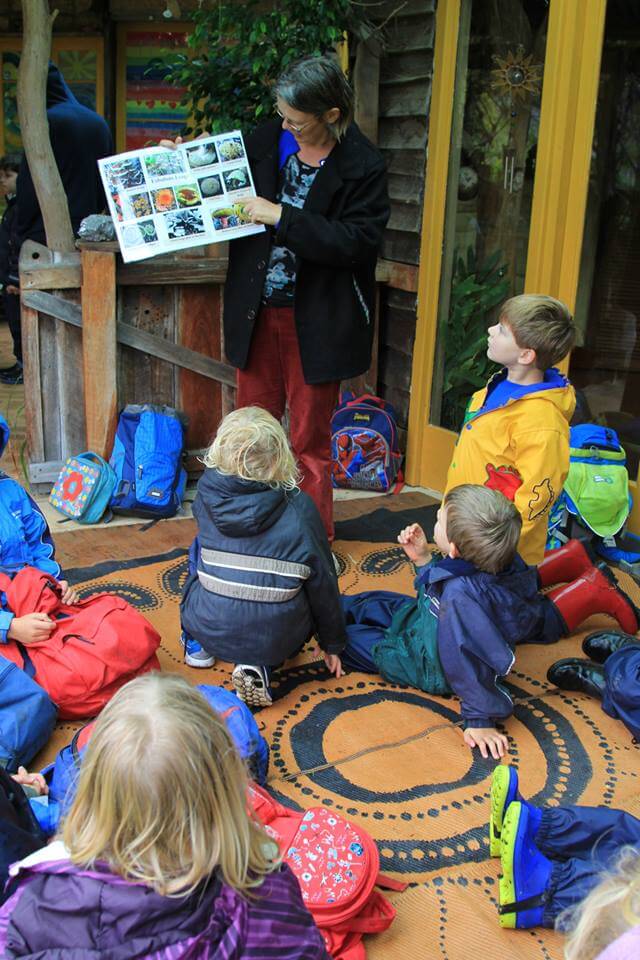
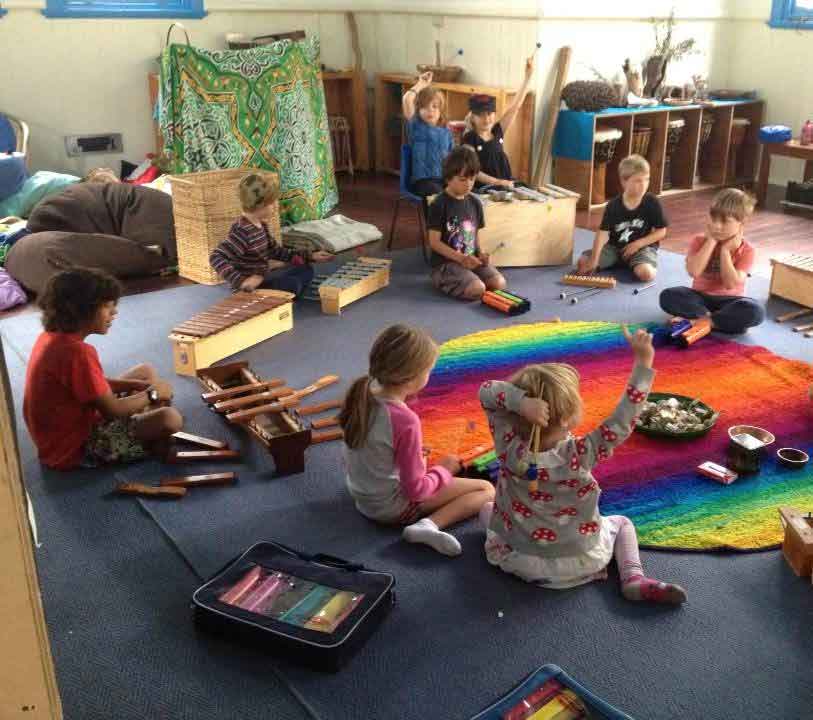
Music: Skills and Appreciation Program
Music is a very strong focus at Spirit of Play. Everyday begins with a morning circle which, as well as song, may incorporate rhythm and dance.
The children have a dedicated group music lesson each week, and the opportunity for individual music lessons, with the recorder, ukulele or marimba.
Rhythm and song are used to present and integrate content in all areas of learning; literacy, numeracy, history, science, languages and cultures, as well as observing and celebrating the changes of season.
Community Participation and Respect
Spirit of Play is committed to the outcomes as described in the Melbourne Declaration on Educational Goals for Young Australians, 2008.
The Early Years Learning Framework: Belonging, Being & Becoming describes the following outcomes:
- Children have a strong sense of identity
- Children are connected with and contribute to their world
- Children have a strong sense of wellbeing;
- Children are confident and involved learners;
- Children are effective communicators.
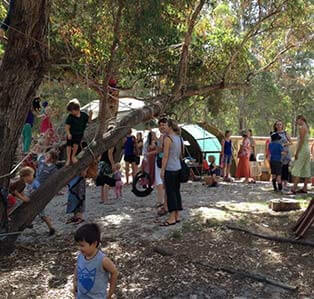
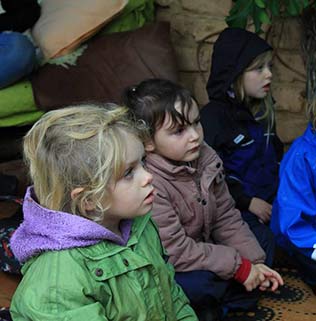
These goals underpin our approach to discipline and behaviour management.
A positive approach to respectful behaviour is integrated into everything we do.
Our Outdoor Program both encourages and depends upon a level of respect for the environment and for each other. Our Cultures and Languages Program, and our Music Program promote an understanding of the importance of both diversity and unity.
All lessons are designed to help develop the social and emotional skills of the children and improve communication.
A progressive approach to the Western Australian Curriculum
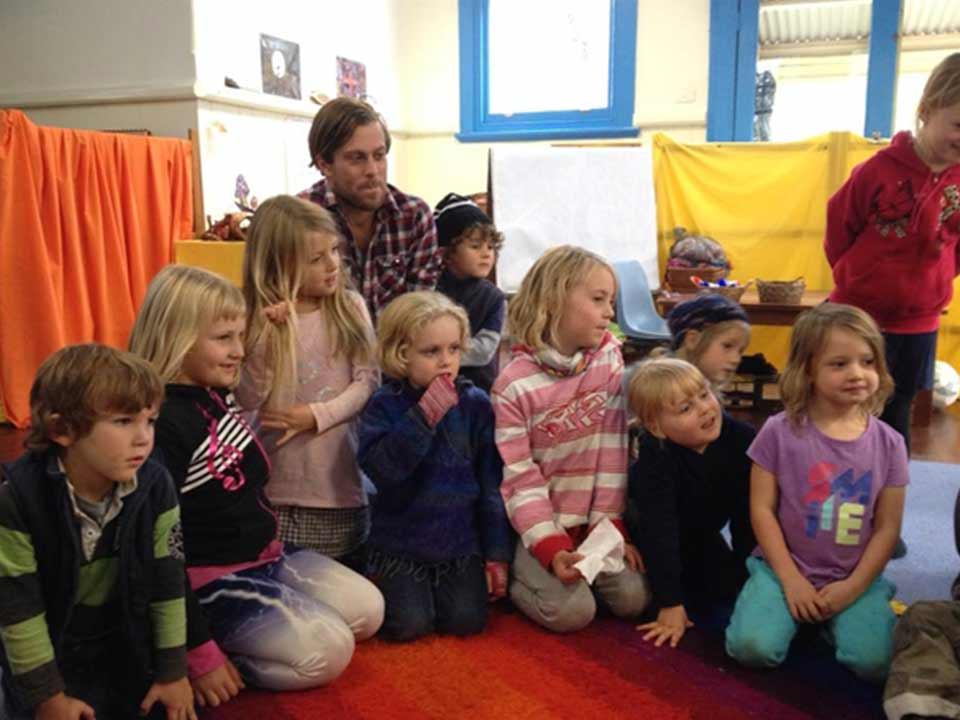
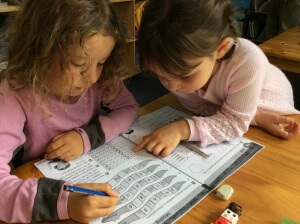
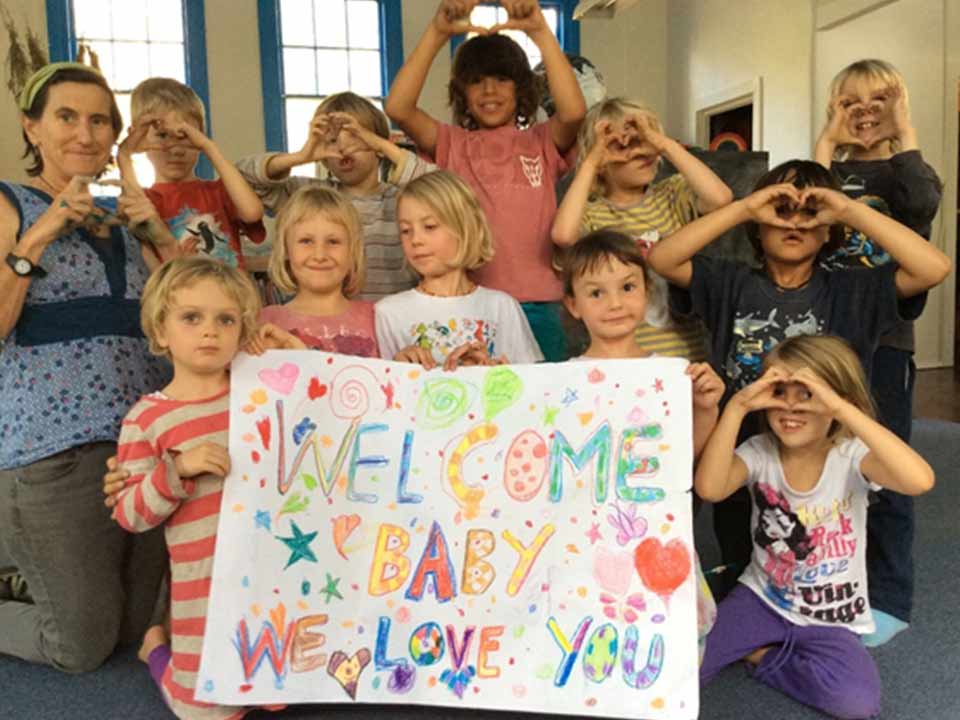
The Spirit of Play curriculum is based on the learning goals of the:
- The Western Australian Curriculum (https://k10outline.scsa.wa.edu.au)
- The Early Years Learning Framework (https://k10outline.scsa.wa.edu.au/home/teaching/early-years-learning-framework)
- The Curriculum and Assessment Outline of the School Curriculum and Assessment Authority of Western Australia.
It is HOW we deliver this curriculum that sets us apart from other schools.
We try to balance a teacher-led but child-centred approach to learning, which stretches the child according to their individual needs, but brings the class together in a joyful spirit of community, playfulness and cooperation.
A nurturing approach to assessment
At our school, it is important that we keep the spirit of play in our assessment and reporting strategies. Parents want to know how their kids are going, what they are doing well in, and where they may need some extra help. Assessment and reporting can be informative, fun, and supportive.
Furthermore, with the right guidance young children can take a very empowered role in the assessment of their own progress. With support they can identify and set their own challenges, and review their own milestones. This is great grounding for life long learning and self-development.
To read more on the many aspects to our curriculum, visit our:
